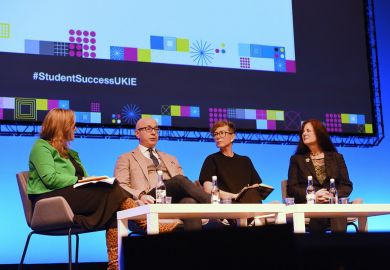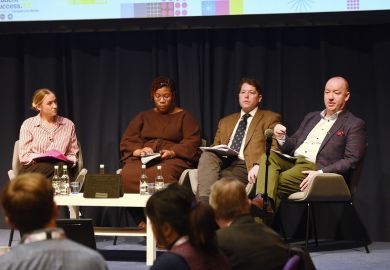The head of the online course provider edX has said that the former non-profit remains fully committed to offering free courses, despite its acquisition by online education company 2U.
EdX was founded by Harvard University and the Massachusetts Institute of Technology in 2012. Its 2021 deal with 2U caused an immediate backlash, with MIT's dean of digital learning resigning in protest and staff vowing to leave edX for the planned faculty-organised alternative.
The deal included a clause guaranteeing that edX will offer free courses for five years only. At the time, critics said the deal would turn the non-profit, which had 160 partner institutions and served nearly 40 million students, into a “lead generator” allowing its commercial partner to “export a predatory model on a grander scale in low- and middle-income countries”.
But Anant Agarwal, an edX founder and now chief open education officer for 2U, as well as an MIT professor of electrical engineering and computer science, said that fears of a pivot to profit-seeking were unfounded.
“I fully expect that free will continue. In fact, after the acquisition by 2U we’re doubling down on free and we want to increase access to education,” he said, speaking to Times Higher Education at its Digital Universities Week UK.
He said that edX has increased the number of free courses it offers as a result of the $800 million (£580 million) deal, including popular offerings such as an introduction to computer science, taught by Harvard instructors.
The small print is that while access to course videos and readings is free, getting a certificate at the end costs £113. “Whenever you have high touch points, exams, certificates, you pay for those offerings,” said Professor Agarwal, referring in the first instance to courses that have live online meetings with instructors.
Despite this walled garden within, he said that the 43 million learners who use the platform demonstrate its societal service. “The majority of them have learned something for free,” he said. “A lot of students are just learning and they’re quite satisfied and they don’t pay for a certificate, they just want to learn.”
Professor Agarwal said the efficiency of digitised teaching meant there was no trade-off between access and cost. He compared the 100 students who watched his in-person MIT lectures on circuits and electronics with the over 500,000 who have watched the video version, which launched the edX platform. “It's the same video,” he said.
He argued that growth in short courses, adult learning and online teaching would lead to “a shift in the world order of universities” and the fact that some of the most popular courses on edX were taught by individuals or industry showed how tastes were changing.
“Learners will want to learn from whoever they think can teach them the best, that will give them the right skills and career advantage,” Professor Agarwal said. “Universities need to capture that audience as well.”
He contrasted the choice available to young Indian students through platforms such as edX with his own experiences as an undergraduate studying electrical engineering with computer science at the Indian Institute of Technology Madras.
Professor Agarwal said: “We had a couple of courses that were really old-fashioned, and they were not cutting-edge anymore. I was the leader of my class, so I went to the department head and I said ‘you know that the master’s students have this other course on television, could we take that course instead of this one?’ He chased me out of his office.”
Register to continue
Why register?
- Registration is free and only takes a moment
- Once registered, you can read 3 articles a month
- Sign up for our newsletter
Subscribe
Or subscribe for unlimited access to:
- Unlimited access to news, views, insights & reviews
- Digital editions
- Digital access to THE’s university and college rankings analysis
Already registered or a current subscriber?








